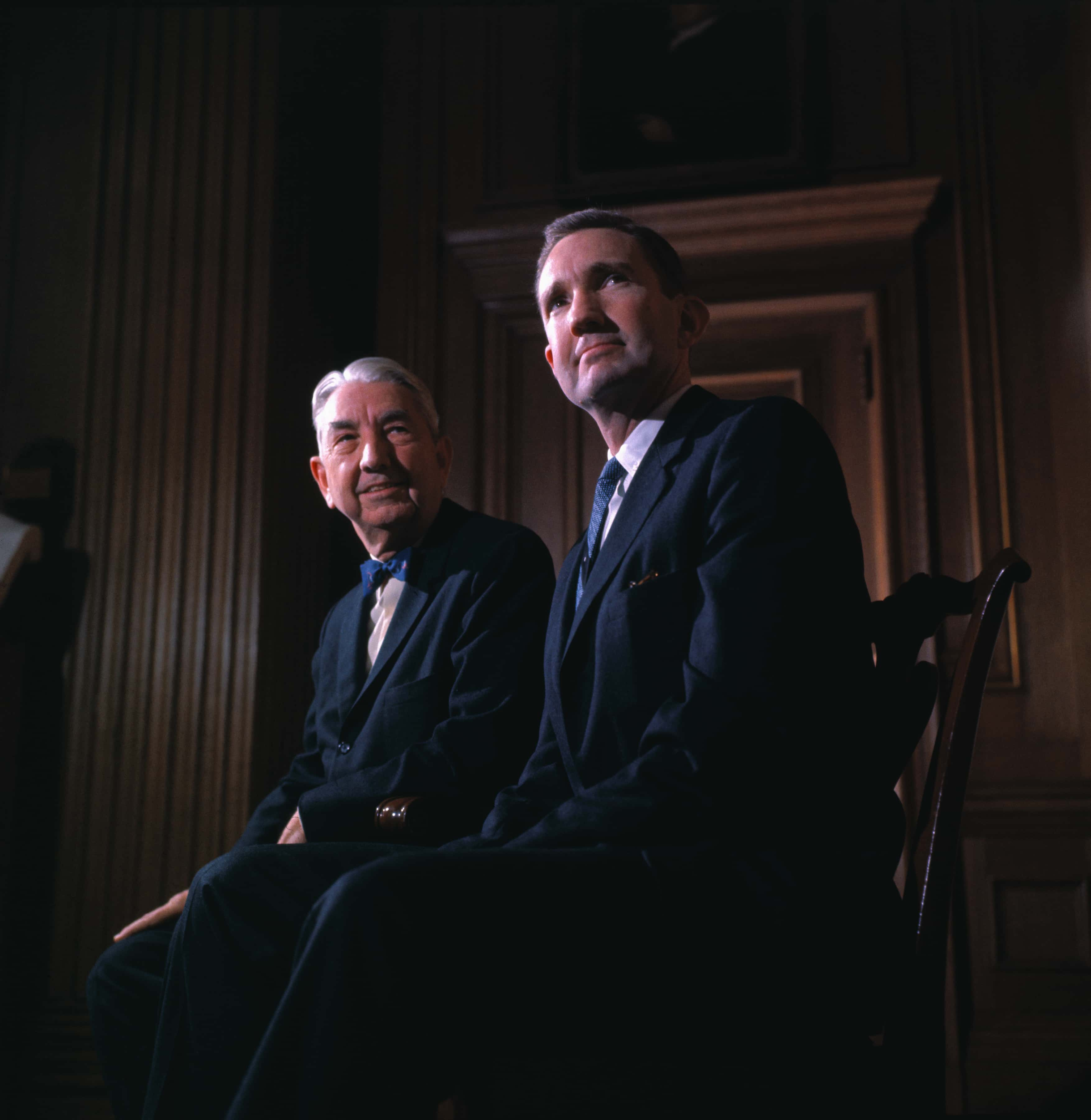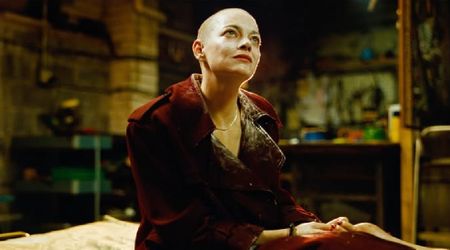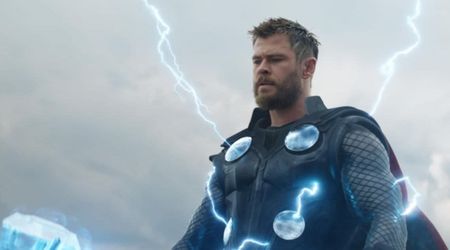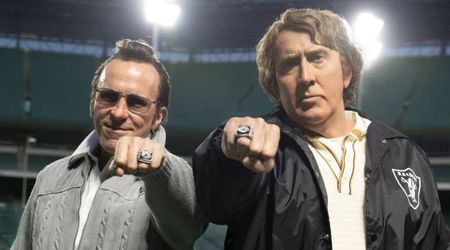‘The Trial of the Chicago 7’: Where is Ramsey Clark now? Former AG defended Saddam Hussein at special tribunal

Peeling the layers of one of the most notorious trials in history, Aaron Sorkin's ‘The Trial of the Chicago 7’ highlights how eight activists — Tom Hayden and Rennie Davis of the Students for a Democratic Society, counter-culture Yippies Abbie Hoffman and Jerry Rubin, MOBE organizers David Dellinger, John Froines, and Lee Weiner, and Black Panther Party Chairman Bobby Seale — are put on trial for conspiring to incite a riot outside the 1968 Democratic Convention.
One of the most interesting points in the film comes when former United States Attorney General William Ramsey Clark is introduced. Portrayed by ‘Birdman’ actor Michael Keaton, Clark comes into the picture when defendants wonder if John Mitchell did all this just to get back at Ramsey Clark? Rennie Davis (Alex Sharp) says, “Outgoing cabinet members are supposed to resign, but Ramsey Clark didn't tender his resignation till the court didn't —” and is met by the response, “Yeah, yeah, I read Mitchell had a fit about that.”
That moment rings a bell in the lawyers' heads. Defense lawyer William Kunstler utters, “If this was a political trial...” and then asks his office to find Ramsey Clark.
In a rather unpredictable set of scenes that follow, Clark willingly comes to the court but judge Julius Hoffman barrs him from being a witness. At that time, The New York Times reported that Judge Hoffman upheld a government objection to Clark's appearance, ruling that he could make “no relevant or material contribution” to the case of the so‐called Chicago 7. Kunstler contended that the judge's ruling was “absolutely unheard of in the history of the United States” and “sets a precedent that is horrendous to contemplate.”

Who is Ramsey Clark?
A New Frontier liberal, William Ramsey Clark was born in Dallas, Texas, on December 18, 1927 to Tom C Clark — who served as United States Attorney General from 1945 to 1949 under President Harry S Truman and then became a Supreme Court Justice in August 1949 — and his wife Mary Jane. A Woodrow Wilson High School dropout to join the US Marine Corps, he occupied senior positions in the Justice Department under Kennedy and Johnson administrations. In 1949, he exchanged vows with his high school sweetheart Georgia Welch and they lived in Greenwich. The couple had two children, Ronda Kathleen Clark and Tom Campbell Clark II. As per reports, they were both 20 when they married.
After serving as Assistant Attorney General from 1961 to 1965, and then Deputy Attorney General from 1965 to 1967, former president Lyndon B Johnson nominated him to be Attorney General of the United States. Dubbed as “able, soft-spoken and liberal,” he was quite efficient in management of the Justice Department's Lands Division and saved enough money from his budget to be able to ask the Congress to reduce the budget by $200,000 annually.

Controversies and political ideologies
When he was appointed, rumors pointed to the resignation of Clark's father from the Supreme Court and eventually that is exactly what happened, leading to Johnson's appointment of Thurgood Marshall, the first African American justice, in his place. During Clark's private service, he was active in the anti-Vietnam War movement and described the War on Terrorism as a war against Islam. In 1991, Clark accused the administration of President George W Bush, Dan Quayle, James Baker, Dick Cheney, William Webster, Colin Powell, Norman Schwarzkopf and “others to be named” of “crimes against peace, war crimes” and “crimes against humanity” for its conduct of the Gulf War against Iraq. He made headlines for offering legal defense to controversial figures and alleged war criminals like Charles Taylor, Slobodan Milošević, Saddam Hussein, and Lyndon LaRouche.
He used to go for rehab sessions at Equinox gym in a wheelchair with help from his wife of more than 50 years. Georgia died on July 3, 2010 at the age of 81. He then had to depend on crutches. Three years later, his son Tom died from cancer.

Where is he now?
In 2004, Clark joined former Iraqi President Saddam Hussein’s legal team, defending him in front of the Iraqi Special Tribunal, which he argued “failed to respect basic human rights and was illegal because it was formed as a consequence of the United States’ illegal war of aggression against the people of Iraq.”
In a letter titled, “Why I’m Taking Saddam’s Case,” he wrote, “The savage presentation of [Mr. Hussein], disheveled, with his mouth open, people probing in his mouth, the dehumanization,” adding, “I have long believed that one of the greatest barriers to peace is demonization.”
He famously once said, “The greatest crime since World War II has been U.S. foreign policy.” Strongly against the presidency of George W Bush, many newspaper reports revealed that Clark lobbied against him through “a website, VoteToImpeach.org, dedicated to collecting signatures of US citizens who want President George W Bush impeached.” After the Bush administration left office in January 2009, he changed the website to IndictBushNow.org.
The winner of 1992 Gandhi Peace Award, and the Peace Abbey Courage of Conscience Award for his commitment to civil rights, Clark lives a quiet life in the West Village now. Two years back when he was 90, WestView News reported he was living there since leaving DC in the early 1970s. When asked, “How do we survive this onslaught in the Trump era?” he replied, “We just have to let it take its course. That’s part of democracy.”










